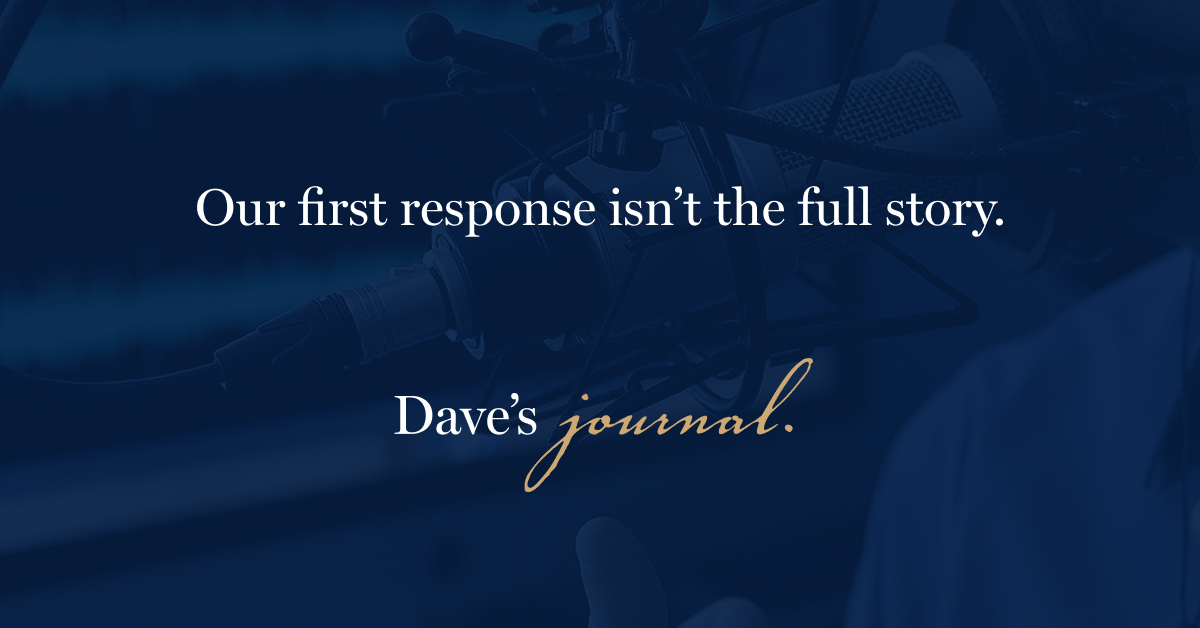In the part of the world I live in, it’s a common greeting to ask:
Hi. How are you?
And then to reply:
Great. How about you?
Usually that’s returned with some version of “doing well” or other generic, positive-sounding statement.
This exchange regularly happens as two people run into each other in passing. Often, it’s used as a form of acknowledgement with someone we have a casual relationship with.
What it’s not, is a conversation. Rarely does anybody listen to the actual responses. If you dare to interrupt this pattern by responding in a way that isn’t expected, such as “actually, I’m having a tough day,” people are a bit taken aback and rarely ready to engage in any kind of meaningful way.
In fact, my seven-year old pointed out to me recently that I often respond with the word, “likewise” in order to shorten the exchange after the inevitable “Great. How about you?” question. I’ve now engaged him as my coach and have asked him to point out to me this verbal tick — and he does so, with perfect consistency.
Virtually anybody I’ve ever discussed this with also finds this cultural norm odd, and yet, most of us go on doing it.
I’m not suggesting any of us invest any effort into changing broad, cultural norms — but it has caused me to notice something that’s almost universally true:
Our first response isn’t the full story.
Since so many of us have been conditioned to move quickly, get the information we need, and move onto the next thing, we’ve been conditioned to make a lot of our language as efficient as possible.
Especially in our professional environments.
For most of us, it’s been the exception when someone — a manager, mentor, or peer — regularly asked a question of us and actually listened for the answer.
As a result, it’s the nature for a lot of us to reveal what’s really happening, in stages. In fact, it makes sense that we do that. Why waste the time getting into a really deep conversation with someone who isn’t really interested or willing to take the time.
I saw this front and center as a corporate trainer. Often, a topic of discussion would come up about something fairly complex, such as leadership, and the initial responses were fairly generic.
I soon realized the practical learning came from quality discussions, not just quantity of responses. Whenever I’d hear a brief, somewhat generic response to a question, I found myself asking:
How so?
If someone talked about having a difficult time with handling conflict, I’d ask:
How so?
If someone said they discovered a way to organize their schedule better, I’d wonder:
How so?
If someone claimed they were struggling with delegating work, I’d respond:
How so?
I worked hard to always be in a state of curiosity, each time I asked this question. As a facilitator, I found myself aching to find out what was behind people’s initial statements.
As this emerged as a habit for me, along with related invitations like “Tell me more,” two things happened that worked great.
First, I heard a ton more detail about situations. Often, this detail would provide an incredible discovery for both of us and others in the conversation — and also illuminate a next step when we were trying to solve a problem.
The second thing was surprising.
Often, when I asked, “how so?” and started listening for more, the real situation, problem, or concern would emerge — one that had nothing to do with what was first stated.
I kept noticing how much more we all opened up with more detail — and sometimes, with what was really going on, when someone bothered to be curious.
Now, you be curious too by asking “How so?” If you do, you’ll be entering into conversations that actually make things better.





